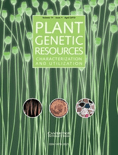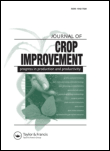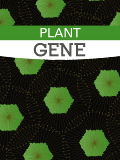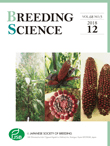
Plant Genetic Resources-Characterization and Utilization
Scope & Guideline
Harnessing Nature's Blueprint for Sustainable Growth
Introduction
Aims and Scopes
- Characterization of Plant Genetic Resources:
The journal emphasizes the detailed characterization of various plant genetic resources, including morphological, physiological, and molecular traits to understand the genetic diversity and potential applications in breeding. - Utilization of Genetic Resources in Breeding:
Research focuses on the practical application of genetic resources in breeding programs, aiming to enhance traits such as yield, disease resistance, and stress tolerance in crops. - Diversity Studies Across Species:
The journal covers studies that explore genetic diversity among a wide range of plant species, including wild relatives and traditional varieties, to identify valuable traits for agricultural improvement. - Molecular Techniques in Plant Genetics:
It frequently publishes studies that utilize molecular markers and genomic tools to analyze genetic relationships, population structures, and trait associations, aiding in the precise selection of breeding materials. - Agroecological Adaptation:
Research often addresses the adaptation of plant genetic resources to various agroecological conditions, ensuring the sustainability of crops in changing environments.
Trending and Emerging
- Climate Resilience and Stress Tolerance:
Recent publications emphasize the identification and characterization of genetic resources that confer resilience to climate-related stresses, such as drought and salinity, which are increasingly relevant in the context of global climate change. - Nutritional Quality Enhancement:
There is a growing trend towards enhancing the nutritional quality of crops through genetic improvement, with studies focusing on traits like protein content, micronutrient density, and bioactive compounds. - Integration of Genomics and Bioinformatics:
The use of advanced genomic tools and bioinformatics for genetic analysis is on the rise. This trend reflects a shift towards data-driven approaches in understanding genetic diversity and trait associations. - Conservation of Underutilized Species:
There is an increasing interest in the conservation and utilization of underutilized plant species, recognizing their potential contributions to food security and biodiversity. - Participatory Approaches in Breeding:
Emerging themes also include participatory breeding approaches that engage local communities in the selection and development of crop varieties, ensuring that breeding programs are tailored to local needs and conditions.
Declining or Waning
- Traditional Breeding Techniques:
There is a noticeable decrease in studies that focus solely on traditional breeding methods. The trend has shifted towards integrating molecular techniques and biotechnology, which are perceived as more effective in addressing contemporary agricultural challenges. - Conventional Morphological Assessments:
While morphological assessments remain important, there seems to be a waning interest in purely conventional approaches without molecular validation. Researchers are increasingly favoring integrated methods that combine morphological data with molecular insights. - Regional Focus on Specific Crop Types:
Research concentrating on specific regional crops has declined, possibly due to a broader global emphasis on universal genetic resources that can be applied across various regions and contexts. - Single Trait Analysis:
There is a diminishing emphasis on studies that analyze single traits in isolation. Recent publications favor a more holistic approach, examining multiple traits simultaneously to understand complex interactions in plant genetics.
Similar Journals

Journal of Crop Improvement
Enhancing global food security through rigorous research.The Journal of Crop Improvement, published by Taylor & Francis Inc, is an esteemed platform dedicated to advancing the field of agronomy and crop science. With an ISSN of 1542-7528 and an E-ISSN of 1542-7536, this journal boasts a commendable reputation, reflected in its 2023 quartile rankings—notably, Q2 in Agronomy and Crop Science and Q2 in Plant Science, positioning it among the leading publications within its category. The journal encompasses a wide range of topics related to crop enhancement, sustainable agriculture, and genetic advancements, catering to the needs of researchers, industry professionals, and students alike. Although it currently does not provide open access, the Journal of Crop Improvement plays a crucial role in disseminating pioneering research aimed at improving crop resilience, yield, and quality. By maintaining a focus on innovative studies and empirical findings, the journal supports the global agricultural community in addressing the challenges posed by climate change and food security.

AUSTRALASIAN PLANT PATHOLOGY
Fostering knowledge for resilient plant ecosystems.Australasian Plant Pathology, published by Springer, is a leading journal in the field of plant science that focuses on the study of plant diseases and their management across the Australasian region. With an established history since 1978, the journal aims to provide a platform for high-quality research that enhances our understanding of plant pathology, prevention strategies, and sustainable management practices. With an impact factor that reflects its significance in the scientific community and its Q3 quartile ranking in 2023 among plant science journals, it serves as a vital resource for researchers, professionals, and students alike. Although it does not have Open Access options, the journal ensures that its content, which spans a wide spectrum of plant pathology topics, remains accessible to a diverse audience globally. With a commitment to advancing knowledge in this crucial area of study, Australasian Plant Pathology continues to play an essential role in addressing the challenges posed by plant diseases in a changing environment.

INDIAN JOURNAL OF GENETICS AND PLANT BREEDING
Cultivating Knowledge in Genetics and Plant BreedingIndian Journal of Genetics and Plant Breeding, ISSN 0019-5200, published by the Indian Society of Genetics and Plant Breeding, serves as a pivotal platform for research in the fields of genetics and plant breeding. Based in India, this journal provides valuable insights into the latest developments, methodologies, and findings that drive innovation and enhance the agricultural landscape. With a convergence period extending from 2008 to 2024, this journal maintains a strong focus on advancing our understanding of genetic mechanisms in plants, contributing significantly to both academic circles and practical applications in agriculture. Although presently ranked in the fourth quartile for Genetics and the third quartile for Plant Science, the journal aims to elevate its impact factor and enhance visibility among research communities through rigorous peer-reviewed articles. Published in both print and online formats, the journal is accessible to a global audience and emphasizes the importance of open communication in fostering scientific advancements. Researchers, professionals, and students alike will find this journal an essential resource for staying abreast of trends and breakthroughs in genetic research and plant breeding.

Revista Caatinga
Elevating Agricultural Research to New HeightsRevista Caatinga is a premier open-access journal published by Universidade Federal Rural do Semi-Árido (UFERSA), dedicated to the dissemination of significant research within the field of Agricultural and Biological Sciences. Since its inception in 2006, the journal has aimed to bridge the knowledge gap in various aspects of agricultural practices and biological phenomena, making vital contributions to the scientific community. With its publications indexed in Scopus and holding an impressive Q2 categorization in the competitive landscape of agricultural sciences, the journal ranks within the top half of its category (100/221), demonstrating a commitment to quality scholarship. The journal is based in Brazil and covers a wide array of topics relevant to both local and global agricultural challenges. By fostering open access, Revista Caatinga ensures that vital research is available to a broad audience, promoting knowledge sharing and collaboration among researchers, practitioners, and students around the world.

Revista Fitotecnia Mexicana
Connecting Researchers to Transform Plant Genetic ResourcesRevista Fitotecnia Mexicana is a prominent academic journal published by the SOC MEXICANA FITOGENETICA, dedicated to advancing knowledge in the fields of agronomy, crop science, genetics, horticulture, and plant science. With its establishment dating back to 2007 and currently running through 2024, this journal serves as an important platform for researchers, professionals, and academic institutions interested in plant genetic resources and agricultural innovations. Although it holds a Q4 quartile ranking in various categories and is positioned within the lower percentiles in Scopus rankings, it provides crucial insights and opportunities for emerging ideas and local research initiatives. Based in Mexico, and with its indexed ISSN 0187-7380, the journal plays an important role in stemming from the rich agricultural heritage of the region. The lack of open access options underscores the depth of curated content provided, making it a valuable resource for professionals seeking to expand their expertise in the sector.

Plant Gene
Advancing the Frontiers of Plant GeneticsPlant Gene is an esteemed academic journal dedicated to the comprehensive study of plant genetics, genomics, and biotechnology. Published by Elsevier, this journal operates from its base in the Netherlands and has made significant strides since its inception in 2015, with a converged year span extending until 2024. As an integral resource in the field, Plant Gene is categorized in the Q2 quartile for Plant Science and Q3 for Biochemistry, Biotechnology, and Genetics as per the 2023 evaluations, reflecting its growing influence and quality of research. With an impactful presence in Scopus rankings—positioned at #145 in Plant Science—this journal serves as a platform for presenting innovative findings and advancing knowledge in plant science. Researchers, professionals, and students will find access to cutting-edge research articles that not only drive the scientific community forward but also offer invaluable insights into the genetic mechanisms underpinning plant development and resilience. While the journal currently operates under a subscription-based model, it aims to broaden accessibility and foster a diverse range of scholarly discussions in the ever-evolving field of plant genetics.

Legume Research
Advancing Legume Science for a Greener FutureLegume Research, published by the AGRICULTURAL RESEARCH COMMUNICATION CENTRE in India, is an essential peer-reviewed journal focusing on advancements in the field of agronomy, crop science, soil science, and plant science. With an ISSN of 0250-5371 and operating since 2008, this journal caters to researchers, agricultural professionals, and students interested in the critical role of legumes in sustainable agriculture and food security. It ranks within the third quartile (Q3) in several prominent categories, reflecting its contribution to the agricultural and biological sciences community—ranking #279 in Agronomy and Crop Science, #113 in Soil Science, and #376 in Plant Science based on Scopus metrics. Although not open access, Legume Research remains a vital resource for those seeking to enhance their knowledge and contribute novel research findings in the ever-evolving discipline of legume cultivation and utilization. With a clear objective to disseminate impactful research, this journal significantly contributes to the global understanding of legumes' ecological, economic, and nutritional importance.

BREEDING SCIENCE
Uncovering Insights in Plant Science and GeneticsBREEDING SCIENCE is a premier journal published by the Japanese Society of Breeding, dedicated to the advancement of knowledge in the disciplines of agronomy, plant science, and genetics. Established in 1993, this influential publication has consistently contributed to the global research community, showcasing high-quality studies that intersect innovative breeding techniques with pressing agricultural challenges. With an esteemed Scopus rank placing it in the top quartile of Agronomy and Crop Science and the second quartile in Plant Science, BREEDING SCIENCE is essential reading for researchers, professionals, and students alike. The journal's reach and rigor are evidenced by its significant presence in leading academic databases, providing insights and advancements that are critical for improved crop production and sustainable practices. Although it does not currently offer open access options, the depth and relevance of its content ensure that it remains a vital resource for those committed to exploring the evolution and impact of breeding science. For further information, readers are encouraged to connect directly with the journal via its administrative office located at the University of Tokyo's Graduate School of Agricultural and Life Sciences.

Plant Biotechnology Reports
Cultivating Knowledge in Biotechnology ResearchPlant Biotechnology Reports is a premier academic journal published by SPRINGER, focusing on cutting-edge research in the dynamic fields of biotechnology and plant sciences. With an ISSN of 1863-5466 and an E-ISSN of 1863-5474, this journal serves as a vital platform for disseminating high-quality studies from 2008 to 2024. Situated in Japan, it has earned commendable status within the academic community, ranking in the Q2 quartile for Plant Science and Q3 for Biotechnology in 2023, placing it among the top-tier publications in its domain. Notably, it ranks #160/516 in the Scopus category for Agricultural and Biological Sciences - Plant Science, reflecting its impact and reach in the relevant fields. While it does not currently offer open access, the journal remains an essential resource for researchers, professionals, and students eager to explore breakthroughs in plant biotechnology. Researchers contribute significant advancements that not only drive scientific understanding but also foster innovation in agricultural practices, making this journal pivotal for both academic and practical applications in the realm of biotechnology.

Horticulture Environment and Biotechnology
Advancing Sustainable Solutions for a Greener TomorrowHorticulture Environment and Biotechnology is a prestigious journal published by the Korean Society of Horticultural Science, dedicated to advancing knowledge in the fields of horticulture, biotechnology, and plant science. Since its inception in 2011, this journal has played a crucial role in disseminating high-quality research, evidenced by its 2023 category quartile rankings, which position it in Q1 for Horticulture and Q2 for Biotechnology and Plant Science. With impressive Scopus rankings, including Rank #18 out of 115 in Horticulture, the journal continues to demonstrate its significance within the academic community by contributing to innovative practices and findings that impact both environmental sustainability and horticultural advancements. Currently, the journal is accessible to a global audience, facilitating the exchange of ideas and research outcomes with no open-access fees. Horticulture Environment and Biotechnology strives to support researchers, professionals, and students alike by providing a platform for critical discussions on the intersection of horticultural science and biotechnology, thereby fostering the development of sustainable agricultural practices that align with contemporary challenges.